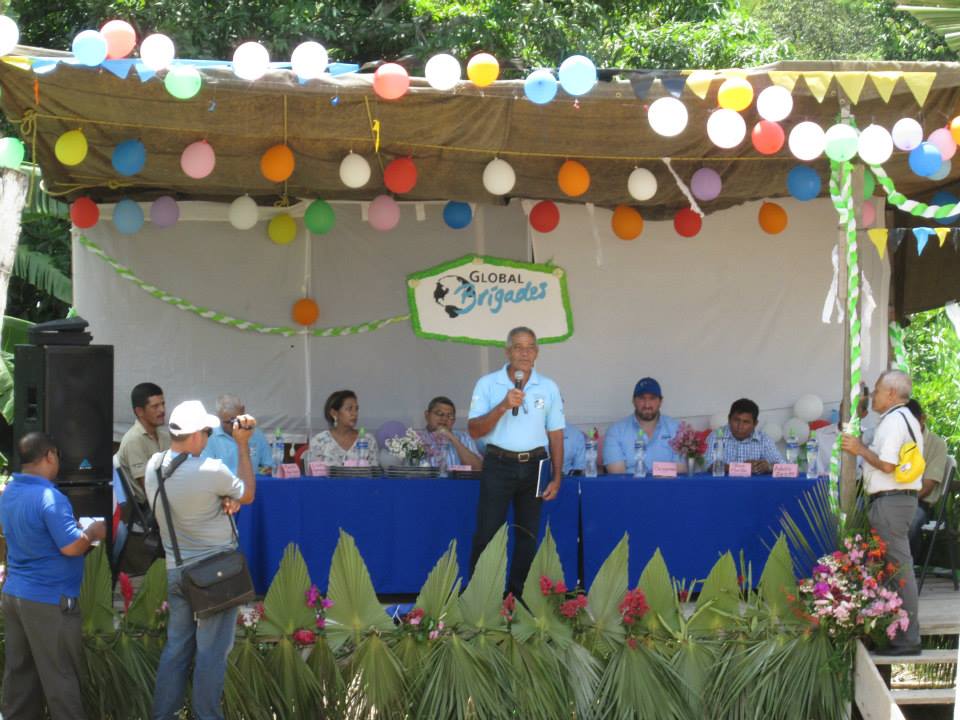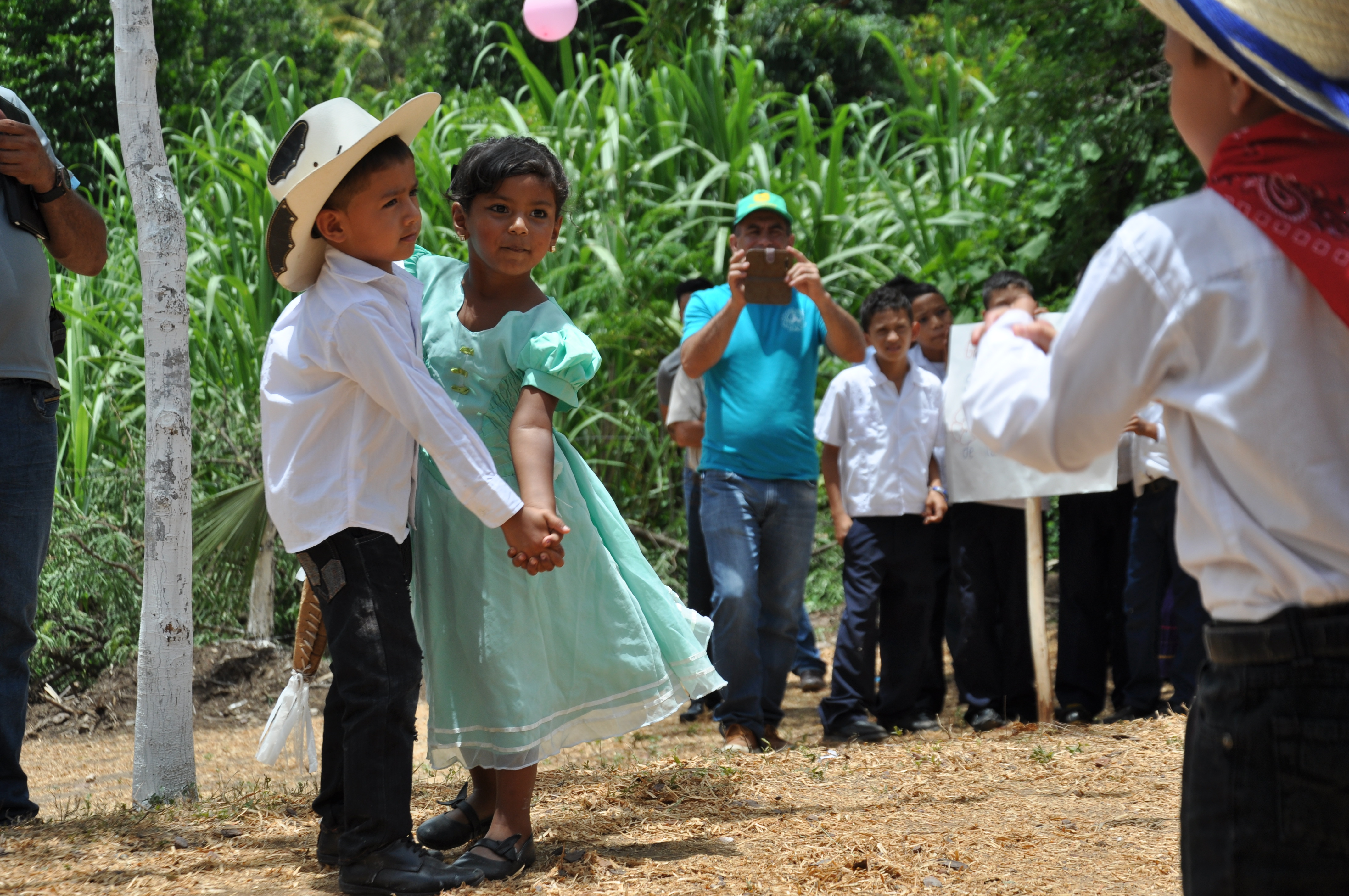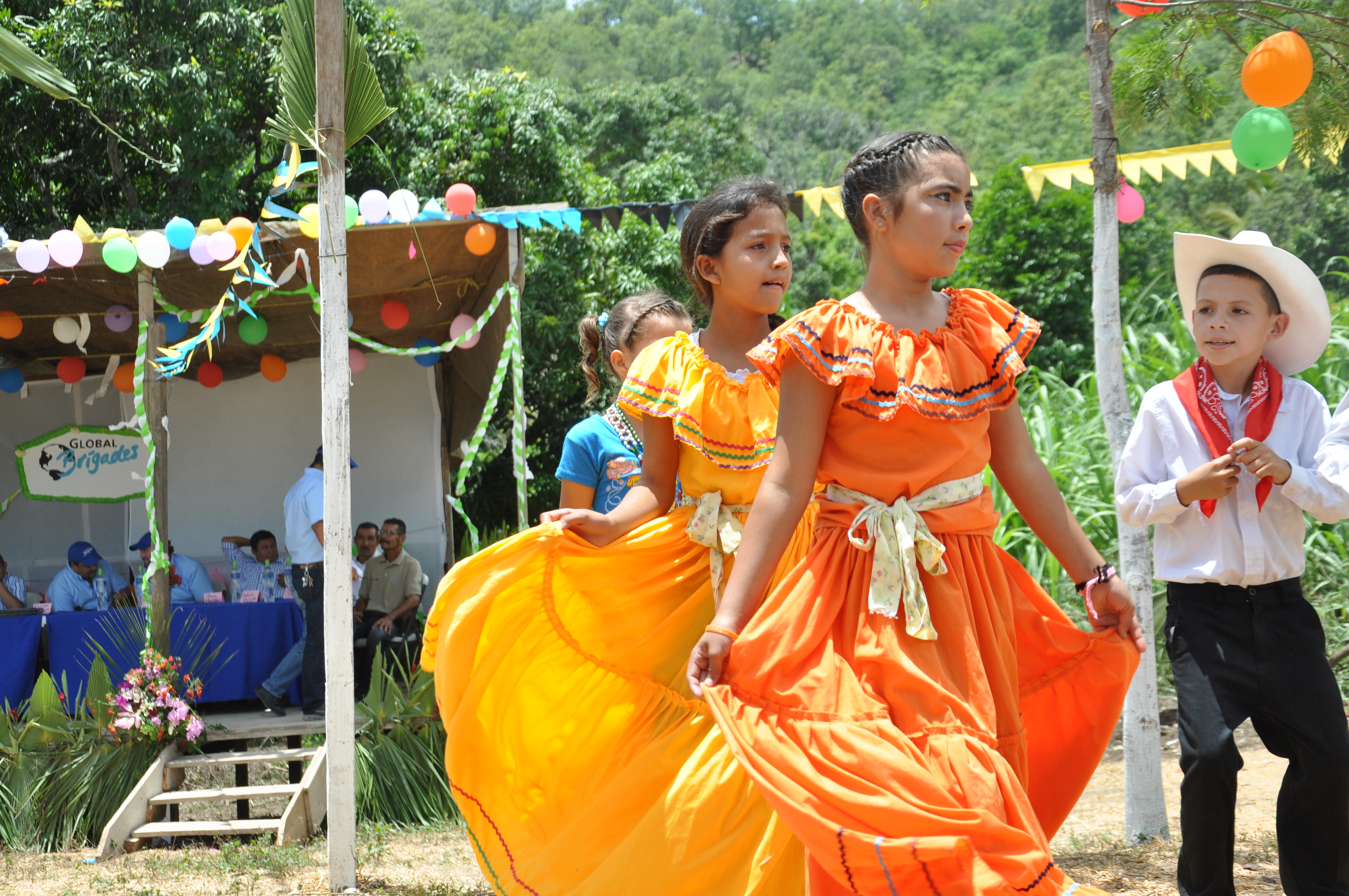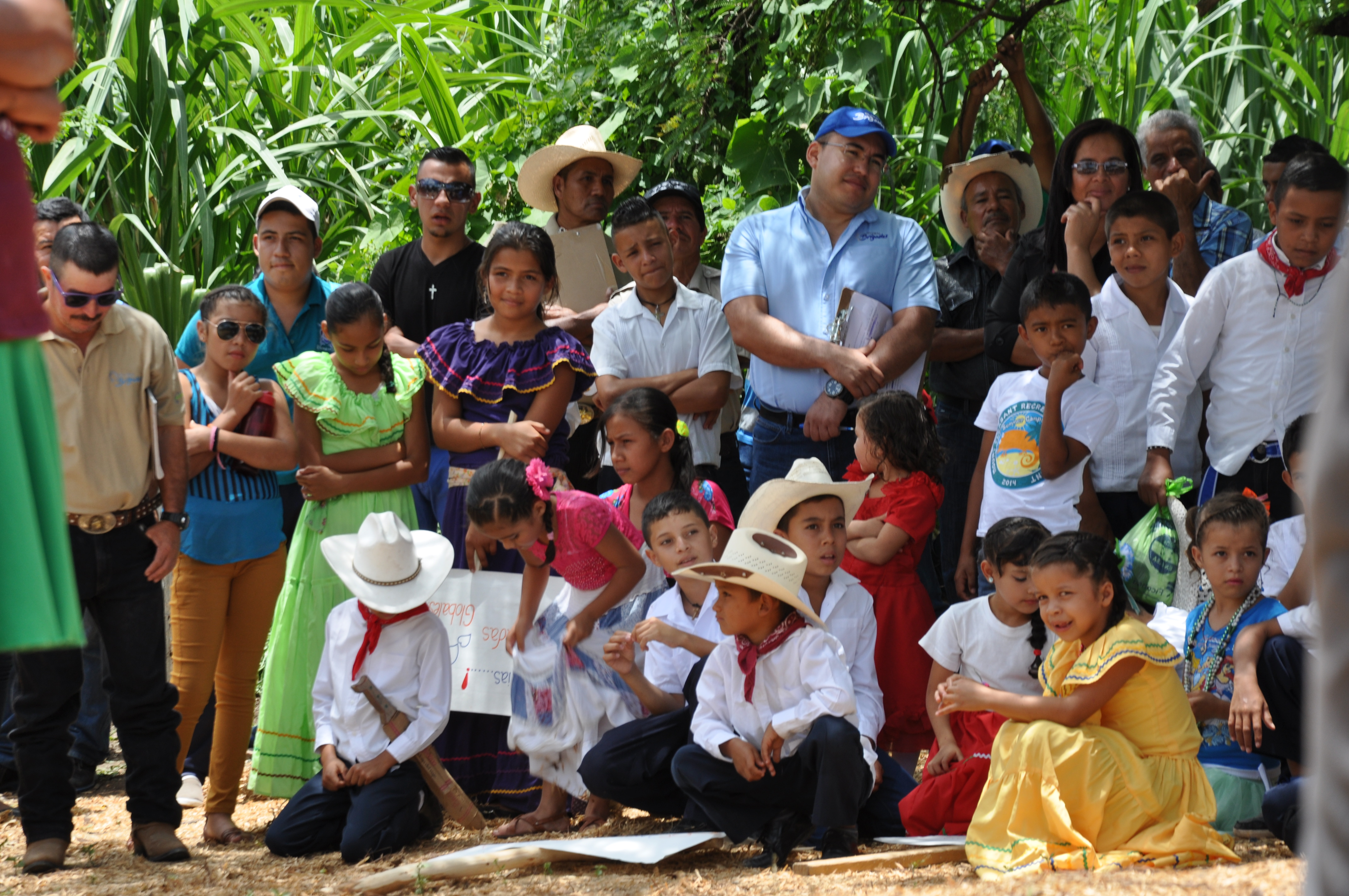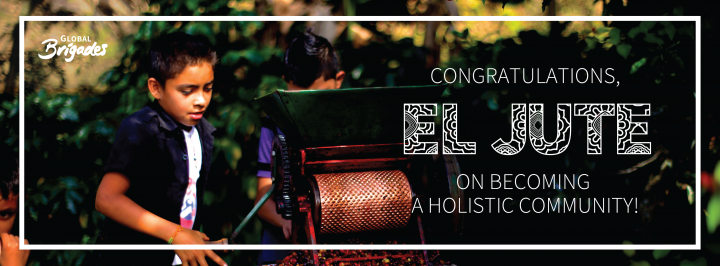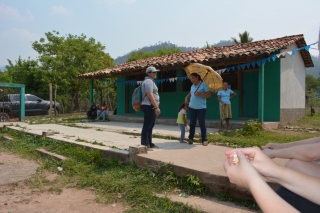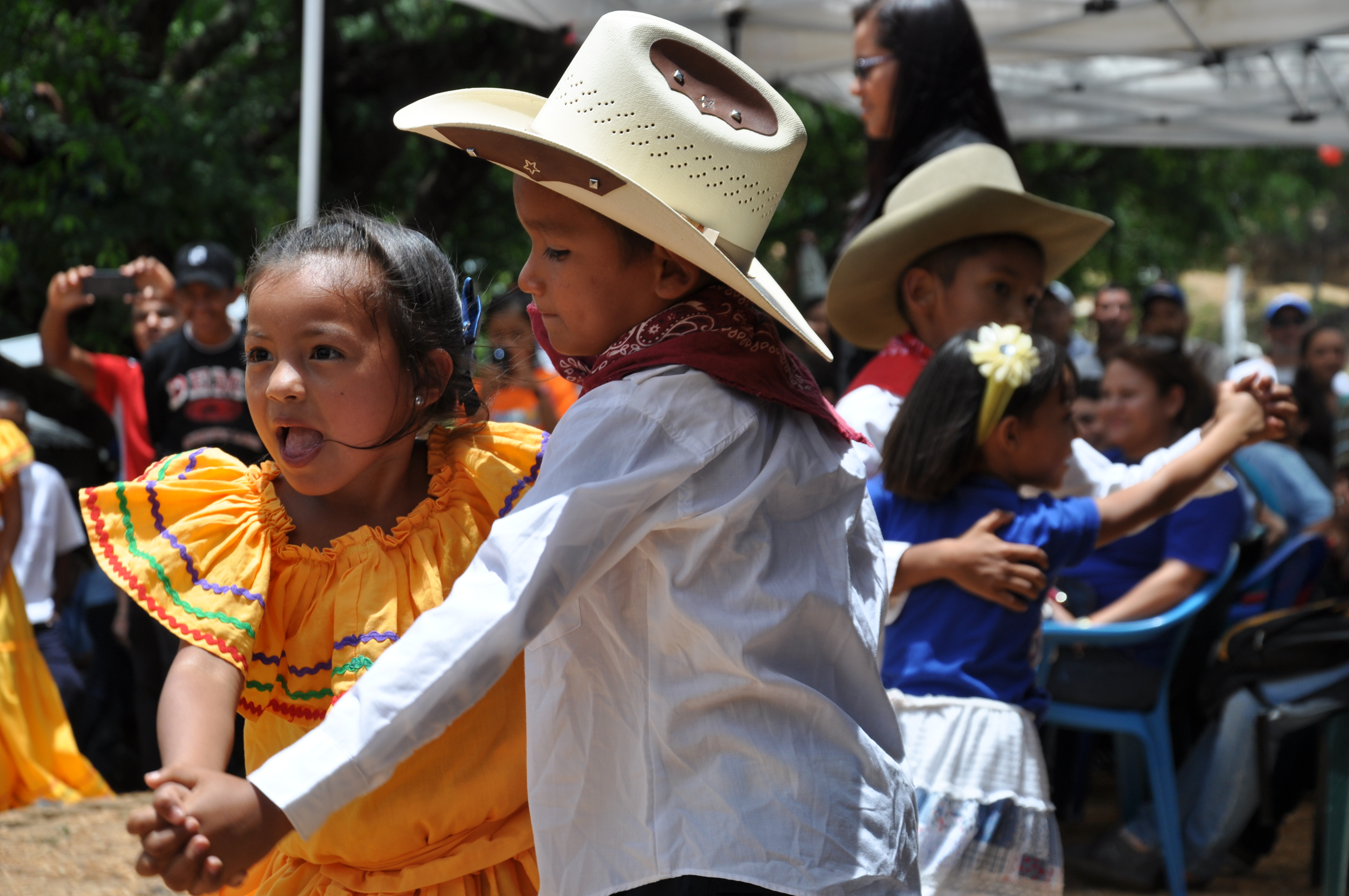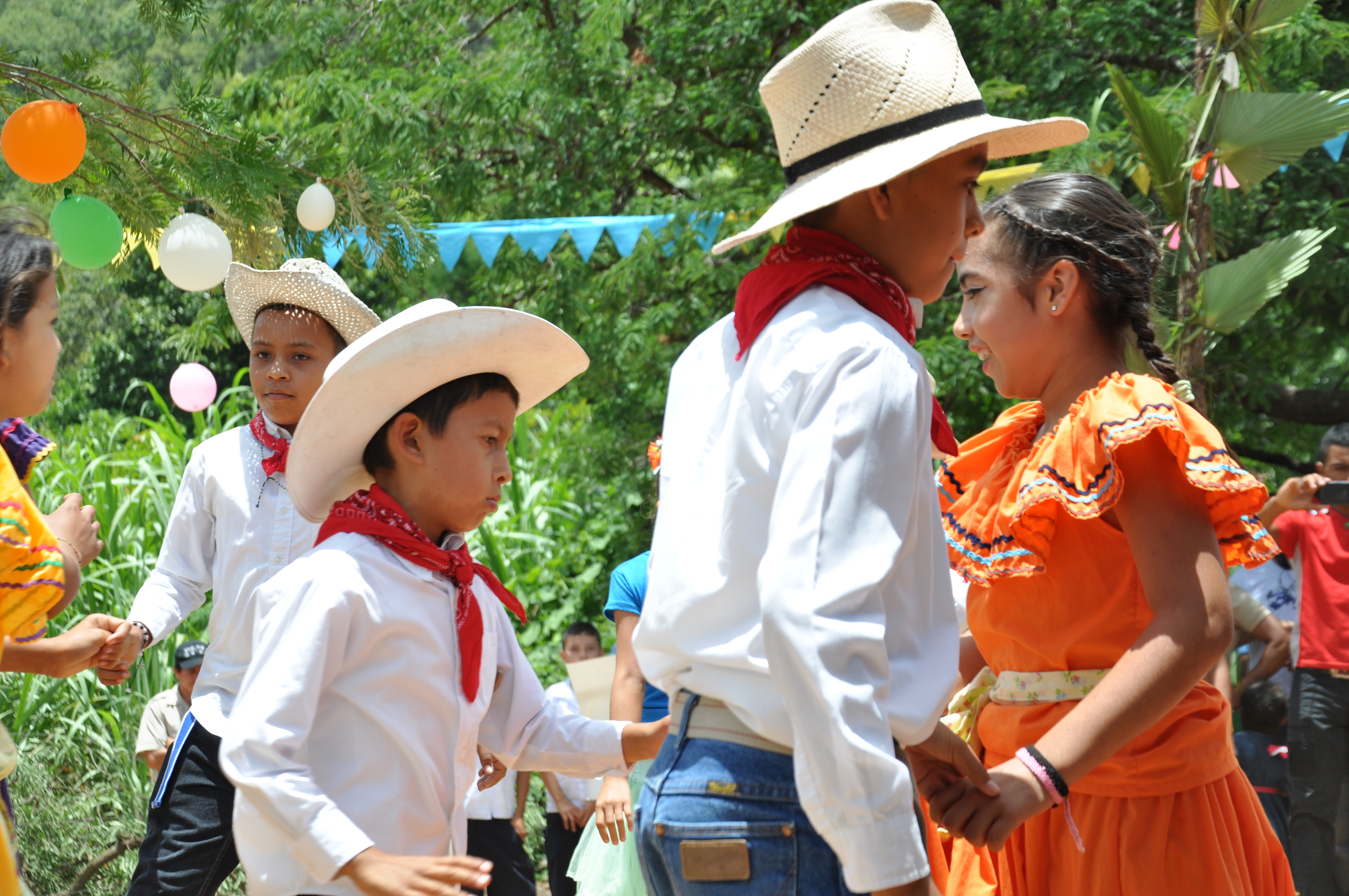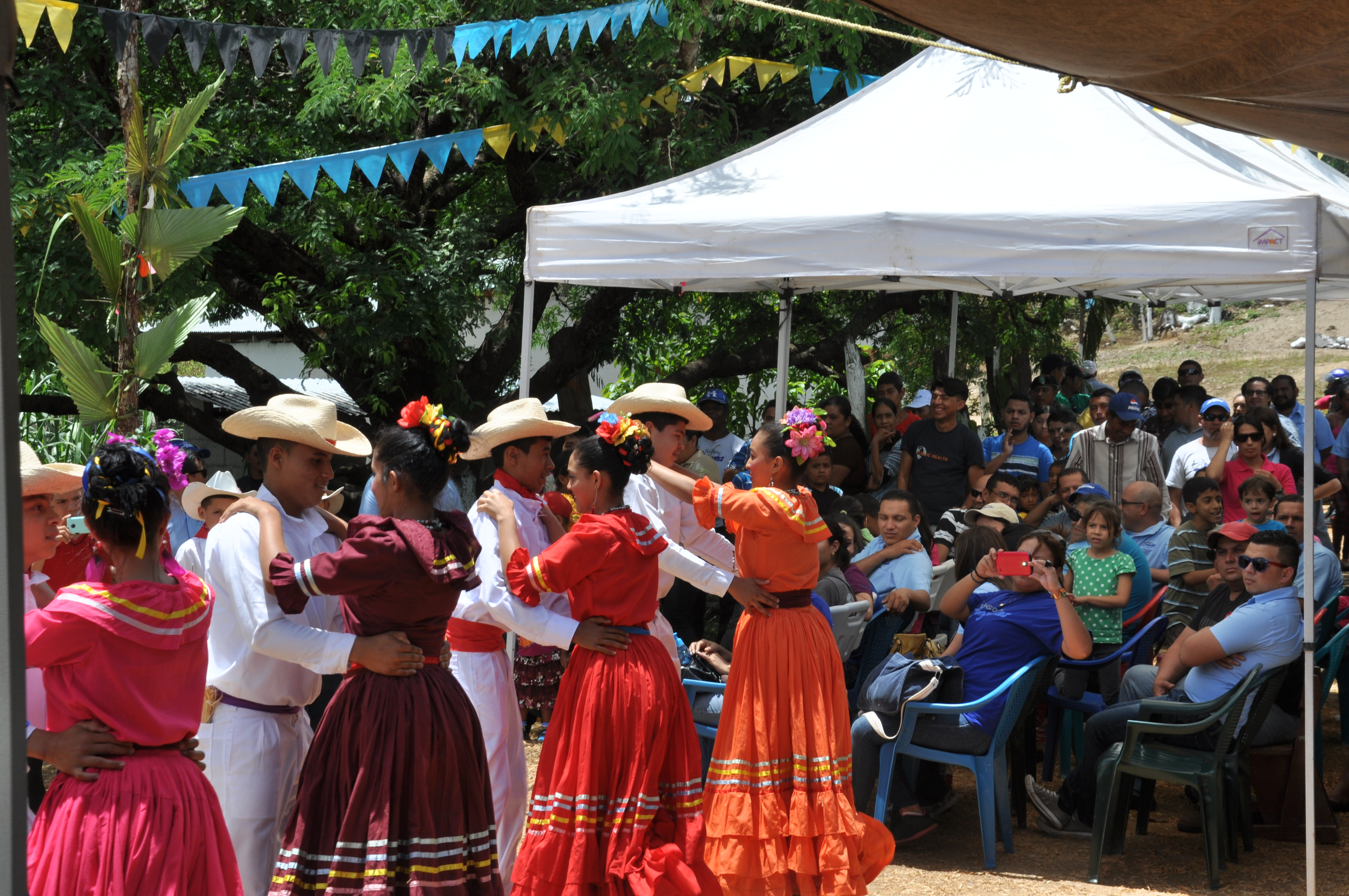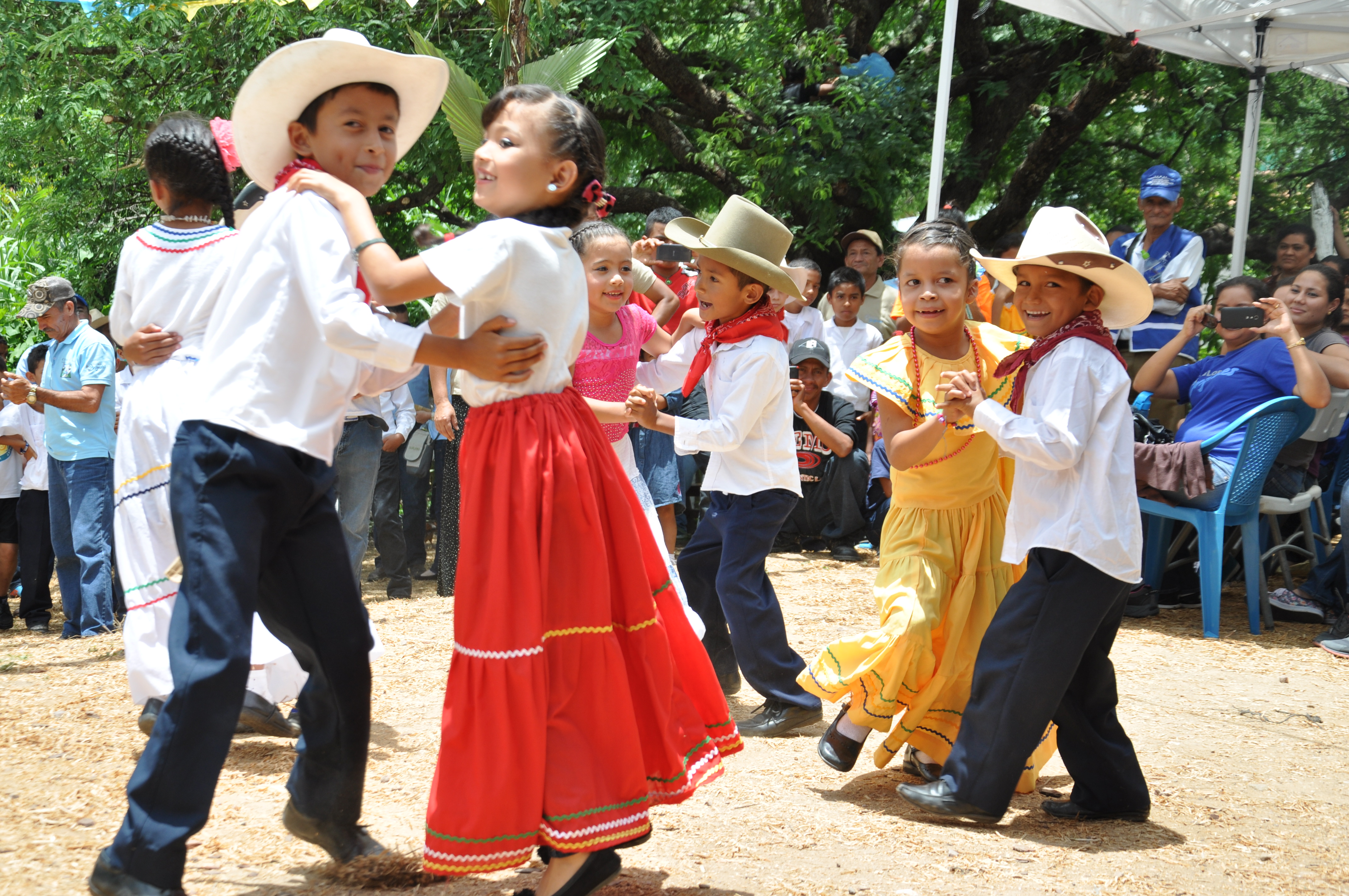Fast Facts
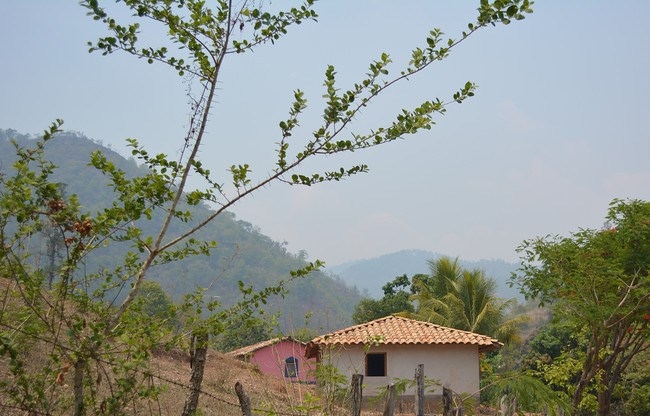
| Population* | 380 |
| Number of Homes | 70 |
| Primary Occupation |
Agriculture - coffee, beans, and corn |
| Electricity | Yes - solar power |
| Nearest Health Center | 2 hours |
| Community Health Workers | None |
| Water System | Yes |
| Community Bank | Yes |
| Homes with Latrines | 100% |
| Distance from Compounds | 1 hr 45 min |
* Population does not reflect how many patients will be seen on medical
brigades as many people from surrounding communities come seeking
medical attention during brigades.
Top Three Needs Expressed: El Jute and Global Brigades are proud to say that through holistic programming, the top health and economic needs of the community have been covered. El Jute also has proven strong leadership and capitalized funds in their community bank in order to address any needs that arise in the future.
Geography
Municipality: Teupasenti
Department: El Paraíso
GPS Coordinates: N 14° 12.650’ W 086° 46.286’
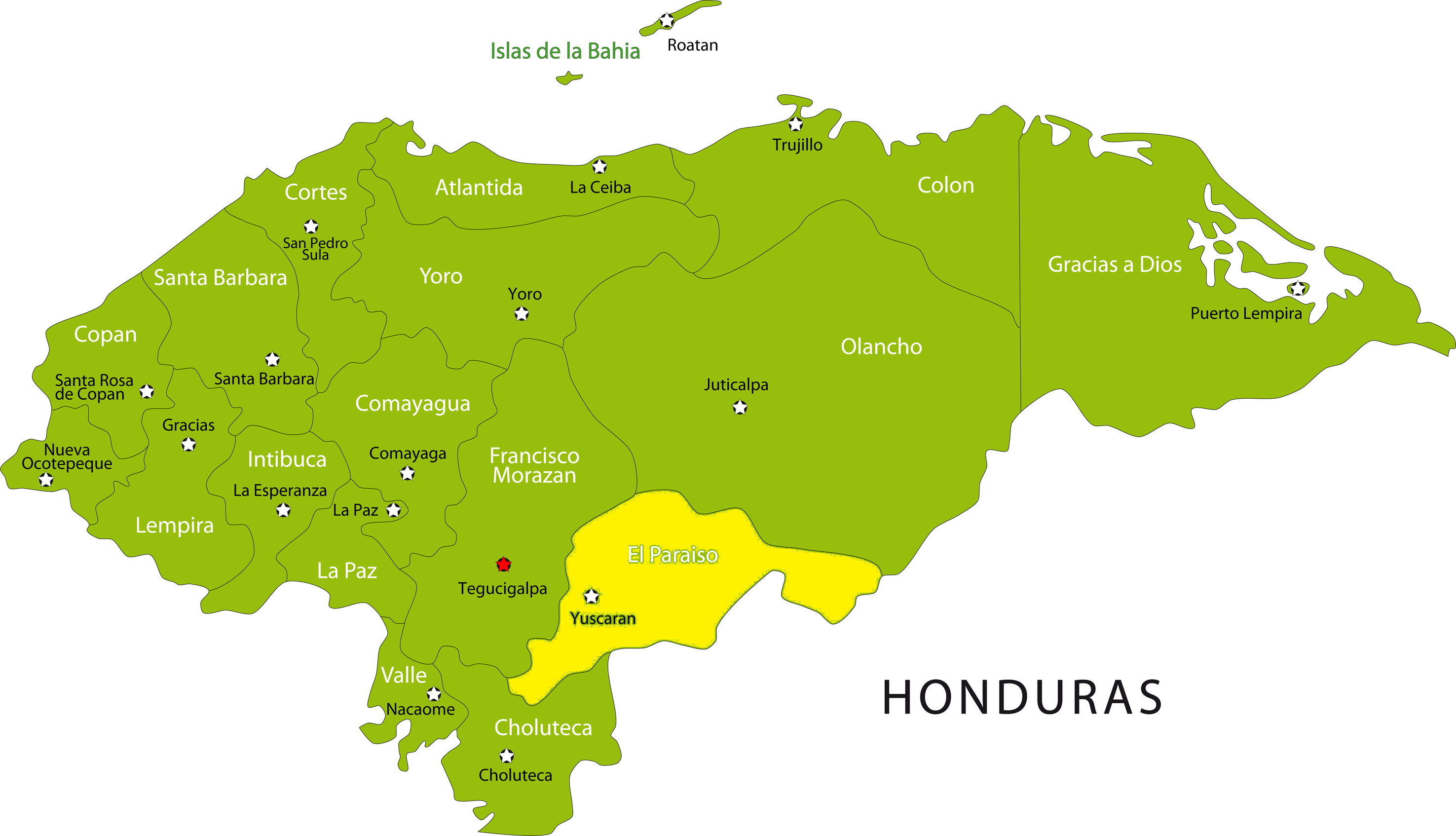
Education
El Jute’s educational system includes Kinder and Primary schools (through 6th grade). There are approximately 45 students at the school. It is approximated that about 90% of the community knows how to read and write.
The closest high school is in Teupasenti, the local municipality. It takes about 2 hours to walk there, and 1 hour via bicycle. Not many students in El Jute have the means or opportunity to go to school past 6th grade.
Architecture Project in El Jute
Architecture brigades have completed the construction of a community center in El Jute:
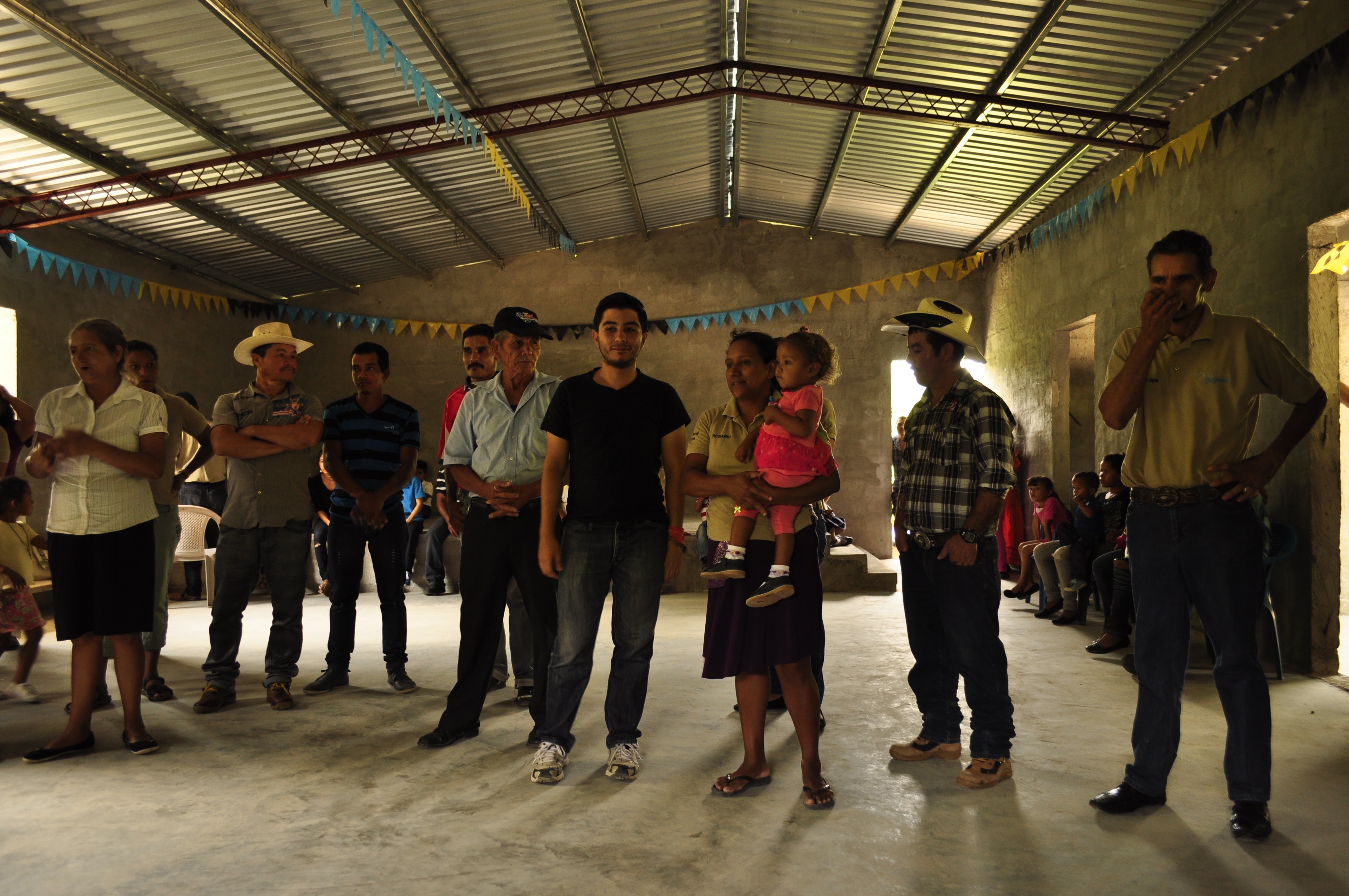
Exiting the community signifies that the program will no longer be bringing brigades to this community and will gradually lessen follow-up to one visit every 6 months-1 year. The Architecture Brigades program trusts that the community members will maintain the community building with the assistance of the trained masons and understand the importance of facility upkeep.
Health Care Access in El Jute
El Jute is a community located in the department of El Paraiso. The community does not have access to a local health center, which means that community members must travel to the nearest one in Teupasenti. It takes about 1 hour 45 minutes to get to the health center on foot and around 30 minutes in a vehicle. This health center in Teupasenti is known as a CESAMO, which is the larger of the two different types of health centers provided by the government. It is usually staffed by at least one doctor and several nurses. Dental care is also available to community members. Should a visitor to the health center require more medical attention than can be given at the center, community members can travel to the hospitals in Tegucigalpa most commonly by bus or on foot.
| Average Number of Patients | 521 |
| Surrounding Communities |
Las Uvas, El Canton, El Retiro |
| Common Illnesses |
Common Cold, Cardiovascular Diseases, Hypertensive Diseases |
| Nearest Health Center | 2 hours walking |
| Community Health Workers | No |
Brigade Site Information
Medical and Dental Brigades are heald at the local school. The school is relatively small, with about 3 rooms. Despite the smaller space, we always run a successful brigade. Doctors spend an average of 10 minutes with each patient and we are able to provide 4-5 educational charlas a day. Each brigade sees an average of 210 patients per day. Below are some pictures of the Brigade Site:
Current Status
This community currently receives brigades approximately every year.
To understand more about how Global Brigades can partner with this community to make an impact, read about what it's like to experience a Medical Brigade.
Dental Program in El Jute
In working closely with the medical program, the dental program provides fillings, extractions, and fluoride treatments as a standard part of medical brigades. Most community members do not have regular access to dental care due to the lack of dentist within a reasonable distance.
Fast Facts
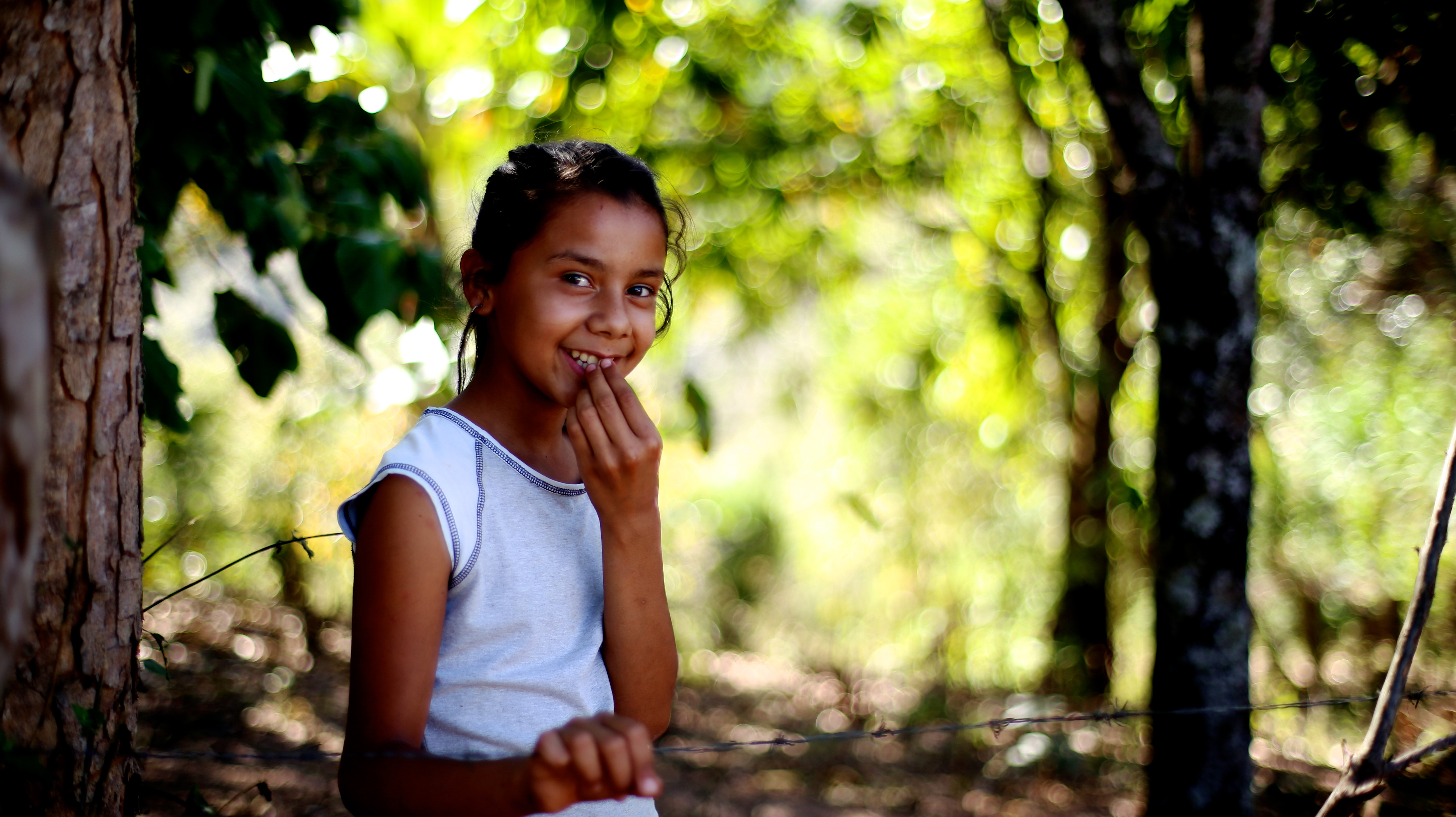
| Average Number of Dental Patients | 102.5 |
| Average Number of Extractions | 93.5 |
| Average Number of Fillings | 47 |
| Average Number of Sealants | 7 |
| Average Number of Child Flouride Treatments | 185 |
Current Status
This community currently receives brigades approximately every year.
To understand more about how Global Brigades can partner with this community to make an impact, read about what it's like to experience a Dental Brigade.
Engineering Program in El Jute
The Engineering Program works in conjunction with the Water Program to ensure water projects are maintained and economically sustainable. El Jute is part of the El Canton's water project, which also reaches Veracruz Matasanos. The below information is about that water project. Please reference the water tab for more details on El Canton's completed water project.
Water Project Overview
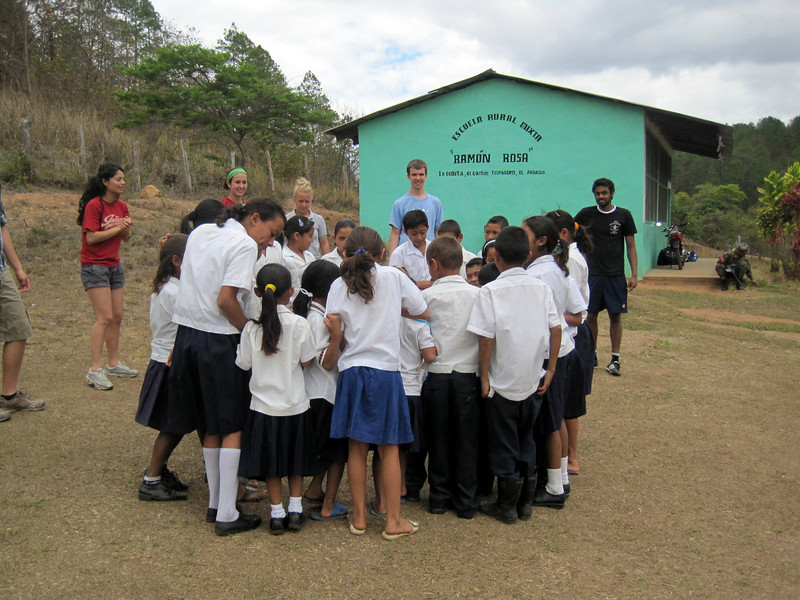
| Number of Beneficiaries | 500 |
| Water System Type | Gravity |
|
Projected Project Cost |
$38,000 |
| Meters of Pipes Needed | 15 km |
| Storage Tank Volume | 11,000 Gallons |
Current Status
El Canton's water system was finished in 2012, and is currently functioning very well. To ensure the sustainability of the project, a new seven member Water Council in each community was established and trained by Water Brigades in addition to a Basic Sanitation Committee also trained in conjunction with the Public Health Program.
To understand more about how Global Brigades can partner with this community to make an impact, read about what it's like to experience an Engineering Brigade.
El Jute's Water Challenge
Twenty years ago, the municipal government built a gravity-based water system connecting the communities of El Cantón, El Jute, and Veracruz Matazano to the same water source. The system did not function properly in the community of El Cantón, however, as the storage tank was constructed at a very low altitude. Thus, there was not enough pressure to bring water to all homes in all communities. In an attempt to remedy the problem, the storage tank was abandoned and water was distributed directly from the distribution pipeline. Unfortunately, the new system required the
community to stop centrally-treating the water, leading to increased incidence of water-borne disease. The three communities would be connected on a new system centralized in El Cantón.
Water Project Overview
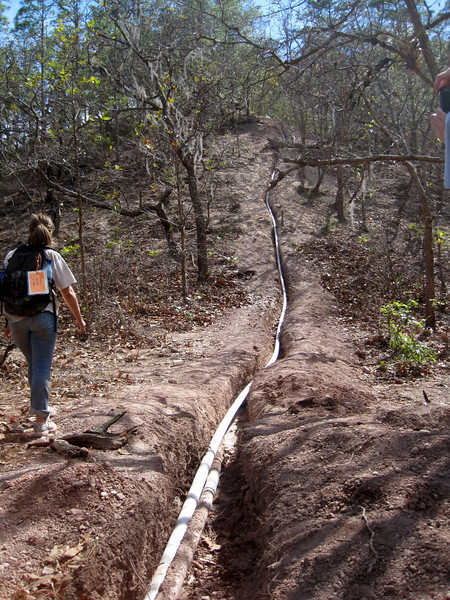
| Number of Beneficiaries | 500 |
| System Type | Gravity |
|
Projected Project Cost |
$38,000 |
| Meters of Piping Needed | 15 km |
| Storage Tank Volume | 11,000 Gallons |
El Jute's Water Solution
Water Brigaders from four different universities worked in El Cantón, El Jute, and Veracruz Matasanos between March 2011 and February 2012. During that time, those volunteers worked with community members to:
• Install a control valve at the dam and build a wall to divert stream
water away from it
• Repair and paint at 11,000 gallon chlorination tank
• Construct a new distribution chamber to divide the water between
the three communities.
• Dig approximately 14,238 meters of trench
• Install 14,238 meters of PVC piping and 654 meters of iron piping
• Connect 87 houses, 2 schools, and 3 churches to the water system
El Cantón shares a water source, dam, and a part of the water system's conduction line with the communities of El Jute and Veracruz Matasanos. During the El Cantón project, improvements were also made to the portions of the water system that serve these two neighboring communities. Water brigades worked with all three communities to install 1.5 kilometers of new, larger diameter piping in the conduction line, and install cleaning, air and control valves in the pipeline. In addition a pressure break tank and aerial stream crossing in the pipeline were repaired and a new distribution chamber was constructed to properly distribute an appropriate amount of water to each of the three communities.
Current Status
Completed: 2012
El Canton's water system is functioning very well. The Water Council is properly administrating the project.
To understand more about the importance of a functioning water system and how Global Brigades can help, read about what it's like to experience a Water Brigade.
The Public Health Challenge in El Jute
Many community members in El Jute lacked the resources needed to improve their homes and prevent diseases caused by unsafe living environments. The majority of homes are made of adobe, straw, and mud and very few homes had hygiene stations, cement floors, and eco-stoves prior to the arrival of Global Brigades. Such living conditions triggered disease. The lack of hygiene stations led to high rates of diarrhea and waterborne disease, the absence of cement floors caused parasitic infection and Chagas Disease, and the lack of eco-stoves resulted in respiratory problems in many community members. Not only did the creation of health infrastructure better the health of household members through improved sanitation and hygiene, but it also improves their quality of life as the new water storage units will reduce time spent walking to water sources and the eco-stove reduces firewood consumption by about 70%.
Public Health Project Overview
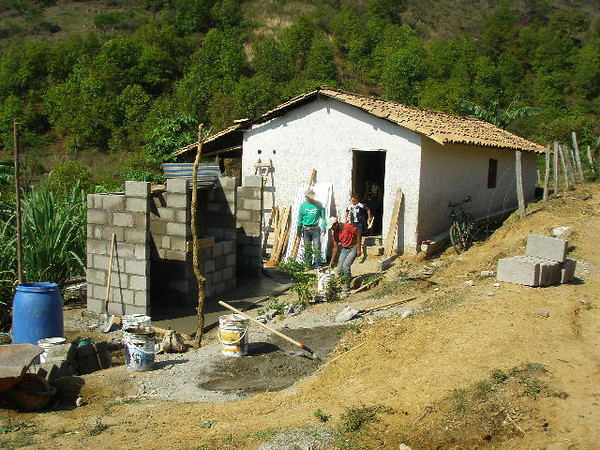
| Number of Beneficiaries | 360 |
| Latrines | 58 |
|
Stoves |
59 |
| Floors | 130 |
| Water Storage Units (Pilas) | 56 |
| Community Health Workers | NA |
The Public Health Solution in El Jute
Public Health Brigaders from several different universities and the Public Health Brigades in-country team worked in El Jute from February 2013 – June 2013. During this time, volunteers and staff members will work with community members to:
• Identify community leaders and train them to form the Basic Sanitation Committee
• Increase cultural sensitivity and awareness by working side by side with qualified masons and
project beneficiaries
• Build 58 eco-stoves, 59 latrines, 59 showers, 56 water storage units, and 130 cement floors
• Conduct educational workshops emphasizing the importance of sanitation and hygiene in the local
primary school
To ensure the sustainability of the in-home infrastructure projects, the Public Health Program provides continuous follow-up in the community. It also forms and trains the Basic Sanitation Committee, a community body formed by local leaders which monitors the correct usage and maintenance of the new infrastructure. Clear responsibilities and powers are assigned to each member, making the beneficiaries themselves an even stronger stakeholder in the Public Health projects.
Current Status
Completed: June 2013
After numerous successful brigades, the Public Health Brigades Program exited the community of El Jute. Exiting the community signifies that the program no longer be brings brigades to this community and will gradually lessen follow-up to one visit every 6 months-1 year. The Public Health Brigades program trusts that the community members will maintain their projects with the assistance of the trained masons and understand the importance of building safe living environments whenever they construct new homes.
To understand more about the importance of these public health projects and how Global Brigades can help, read about what it's like to experience a Public Health Brigade.
El Jute's Economic Challenge

The average family income per month is estimated to be 2500 lempiras, approximately $112 USD a month. About 10% of community members work in the community's municipality, Teupasenti, as teachers, gas station attendants, market clerks, and assisstants. Due to the community's location, the majority (95%) of the community members are coffee growers. The coffee is grown on family owned land; although their work is not limited to their own land. When the coffee harvest is complete about 60% of the community members grow corn and beans. In 2016, the community bank opened their first micro-enterprise, El Jute's Tilapia's Farm, providing a new source of income for about 25% of the community.
Community Bank Overview
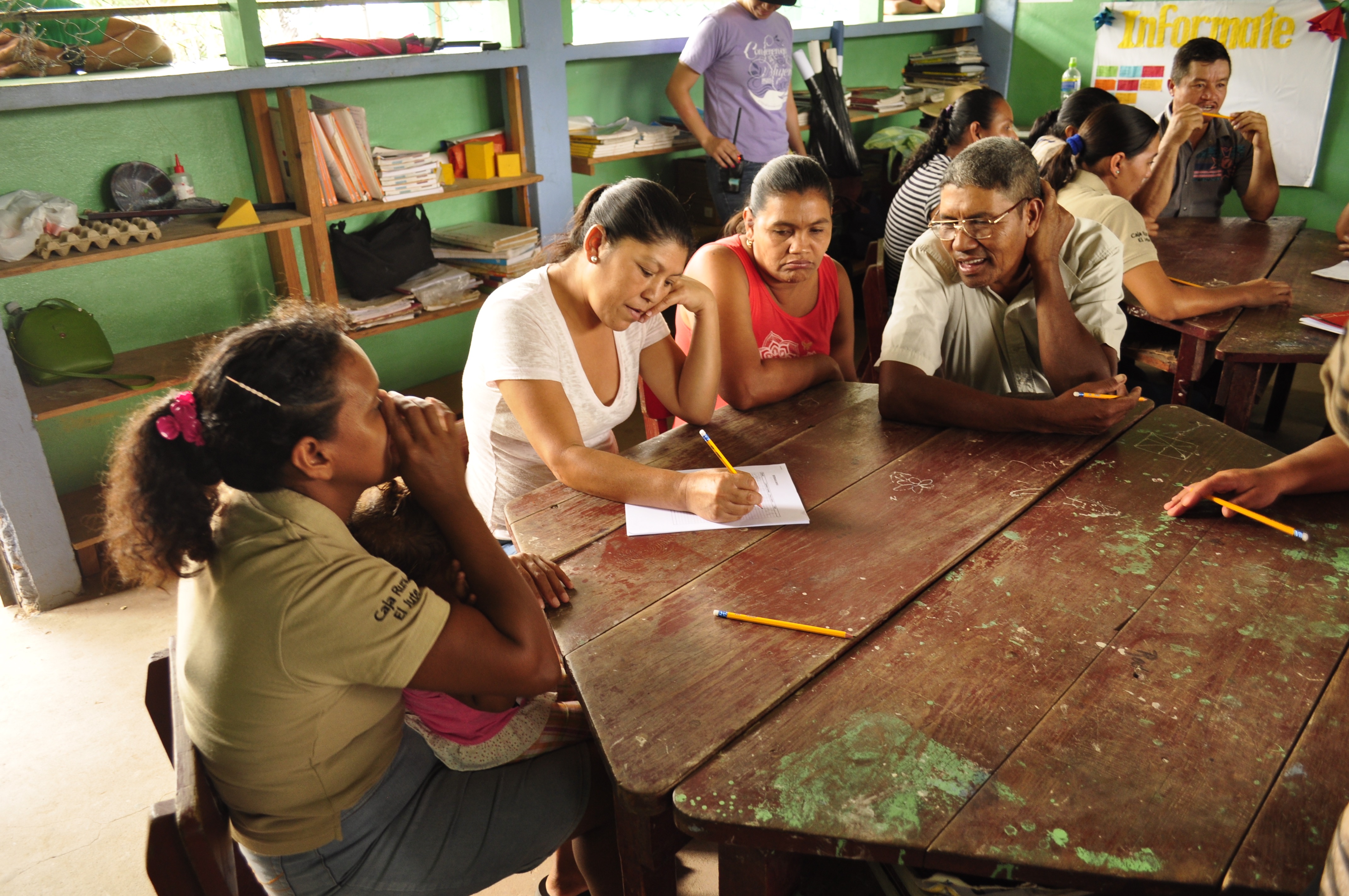
| Establishment Date | February, 2013 |
| Number of Members | 33 |
|
Services |
Credits and Savings |
| Microenterprise | Coffee Enterprise |
| Number of Beneficiaries | 380 |
El Jute's Microfinance Solution
El Jute established their community bank, Nuevo Progresistas, with the help of the GB Microfinance and Business team in 2013. Nuevo Progresistas became the 7th community bank created and trained by GB Honduras's Microfinance program. The bank now includes 33 members who pay monthly share and aid with the funding of loans. Since the establishment of the Caja Rural, every family in the community has benefited from a loan. The majority of loans are used for agriculture needs such as buying fertilizer and pesticides for the maintenance of the coffee. In 2014-15 over 10, 000 USD were given in loans. The loans served as capital for agriculture, education and emergencies. In addition, every child in the community has the opportunity to open a savings account. 73 savings accounts have been opened with only 100 lempiras. Community members are encouraged to open savings acccount by earning 1% a month on interest.
El Jute's Tilapia Farm
In March 2016, El Jute's tilapia farm microenterprise was established with the help of business/microfinance brigaders and in-country team. A tilapia farm was chosen as a business because it promised to create employment, increase the intake of protein in the community's diet, and fulfill a market demand. Brigaders aided the community with a business plan and market research. Many community members had their first taste of fresh fish when UK brigaders prepared tilapia at the compound and brought some tasters to the community. The opportunity to have access to fresh fish brought alot of excitement to the leaders and community members.
The leaders of the micro-enterprise are all leaders and members of the community bank. The business owners received administrative training from the GB Business team and additional training from led by a tilapia expert. Traininig included: growth cycles of the tilapia, feeding, marketing, sales, supply chain, and finances.
Leaders Roles include:
- Adminstrator
- Production Manager
- Sales Manager
- Auditing Committee
El Jute's Tilipia farm is excited to complete their first productioon of 2,000 pounds of tilapia by the end of 2016. They hope to produce 2,000 pounds of tilipia twice a year. To understand more about the importance of the business program and how Global Brigades can help, read about what it's like to experience a Business Brigade.
El Jute's Inauguration
El Jute was officially inaugurated as a holistic community in July of 2015. After working with Global Brigades staff and volunteers, the community has established strong leadership in continuing both health and development initiatives in their community. El Jute has a newly constructed community center, a basic sanitation committee, a community bank, and a couple strong microenterprises. Below are some photos from the inauguration.
